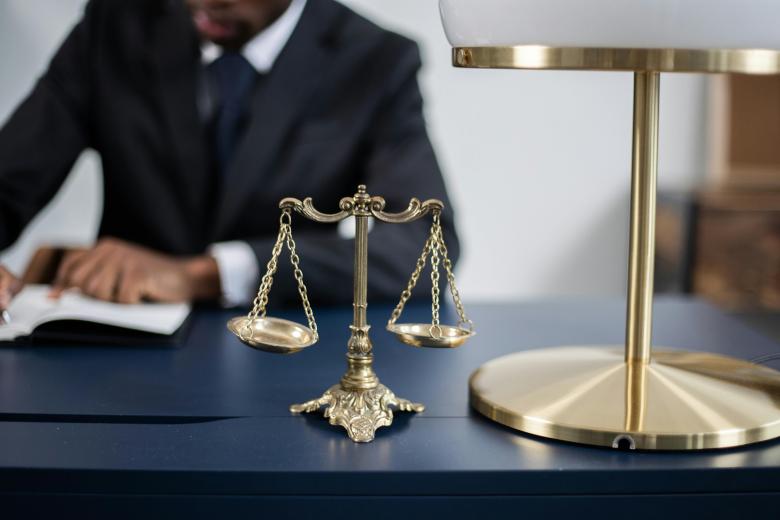Genocide in Gaza?
A brief explainer about the ICJ case brought by South Africa against Israel
On 29 December, almost three months after the 7 October Hamas attacks on Israel and the ensuing Israeli military strikes on the Gaza Strip, which had by then resulted in the deaths of more than 21,000 people and more than 55,000 wounded or injured, the Republic of South Africa initiated legal proceedings against the State of Israel before the International Court of Justice (ICJ), alleging Israel was violating the Genocide Convention in the Gaza Strip. South Africa also urgently requested the Court for provisional measures to prevent irreparable harm before the Court would hear the merits of the case. The ICJ promptly scheduled hearings on this request on 11 and 12 January 2024, which received worldwide attention.
At the conclusion of the hearings in what is now called the case concerning Application of the Convention on the Prevention and Punishment of the Crime of Genocide in the Gaza Strip (South Africa v. Israel), its President, Judge Joan Donoghue, announced that the Court would render its Order on Provisional Measures “as soon as possible”. It is now up to the seventeen judges sitting in the case to decide where they stand and to reconcile the opposing narratives which have been presented to them into a decision. This decision will only be of a temporary nature and not present the final word in this case, except in the highly unlikely case that the Court completely sides with Israel, which asked the ICJ to throw out the case. As will be explained in more detail below, it is possible, but not very likely, that the Court will order a ceasefire. However, it is almost certain that the Court will express concerns about the methods of warfare chosen by Israel and call upon it to comply with its obligations under the Convention on the Prevention and Punishment of the Crime of Genocide (Genocide Convention).
What is South Africa asking for?
South Africa bases its claim that Israel is violating the Genocide Convention on two main points. First, it argues that the way in which Israel conducted its military operation showed a pattern of disregard for the lives of civilians, especially children – citing a UNICEF Spokesperson that ‘Gaza has become a graveyard for children’. Genocidal acts, as listed in Article II of the Convention, are being perpetrated with the specific intent to destroy the Palestinian population in Gaza—a group protected under the Genocide Convention. Second, South Africa asserts that statements made by Israel's political and military leaders, including prime minister Benjamin Netanyahu, amount to incitement to genocide, thereby violating Article III(c) of the Genocide Convention. Furthermore, South Africa contends that Israel has failed to take any punitive measures in response to these actions.
South Africa’s key request is for the Court to order the suspension of the ongoing military operation in the Gaza Strip. This suspension is sought to prevent further severe and irreparable harm to the rights of the Palestinian people, as guaranteed under the Genocide Convention. Pursuant to Article 41 of its Statute, the ICJ has “the power to indicate, if it considers that circumstances so require, any provisional measures which ought to be taken to preserve the respective rights of either party” pending its final decision on the merits. In addition to requesting that the court orders Israel to immediately halt its military operations in Gaza, South Africa made a number of other requests to ensure that Israel takes steps to prevent acts that could be construed as genocidal towards Palestinians, including unrestricted access to humanitarian aid for their well-being.
What is Israel’s response?
Israel vehemently opposes South Africa’s allegations and argues that it was rather Hamas which launched a genocidal terrorist attack on 7 October against Israeli civilians on a Jewish holiday, resulting in the largest loss of Jewish life in a single day since the Holocaust, the taking of hundreds of hostages, and a continuing barrage of thousands of missiles fired into Israel indiscriminately. Israel maintains that it conducts its military operations in accordance with the laws of armed conflict. In its military response, which is justified by the right to self-defence, it does everything it can to avoid harm to civilians, but given Hamas’ deliberate weaponisation of civilians and civilian infrastructure in Gaza, the tragic loss of Palestinian civilian lives is inevitable. Israel believes that suspending its military response, which would leave it vulnerable to further attacks, would be disproportionate to South Africa’s rights.
Why did South Africa bring the proceedings and not Palestine?
This application is unique because it is brought forward by a state, South Africa, which is not directly affected by the ongoing conflict in the Gaza Strip, which is part of Palestine. The most likely reason why the State of Palestine did not initiate proceedings against Israel is a combination of its uncertain statehood and political weakness. South Africa is initiating these proceedings based on the principle of erga omnes partes, holding that every state party to the Convention has a legal interest in the compliance with the Convention by every other state, even if they are not directly affected. This is for example why The Gambia could initiate a case against Myanmar for alleged violations of the Genocide Conventions against the Rohingya ethnic group. Although South Africa is not directly affected by Israel’s actions, it therefore can claim to have a legal interest in Israel’s compliance with the Convention.
The African National Congress (ANC), South Africa’s ruling party, has a long history of solidarity with and support for the Palestinian cause, dating back to the apartheid era in South Africa. Given its own troubled history of apartheid and the way in which it has made the transition to democracy, and in addition its current position as a leading state in the developing world and a member of the BRICS, South Africa occupies a prominent position in the Global South, where support for the Palestinian cause is well-established. Politically, the symbolic nature of South Africa taking action to prevent the State of Palestine, which South Africa highlights as also a victim of apartheid, from falling victim to the crime of genocide is of tremendous significance.
In a way, it could be said that given the widespread allegations of genocide against Israel by multiple governments (many of which are quoted in §12 of South Africa’s application), UN experts, as well as the Committee on the Elimination of Racial Discrimination, it may have been just a matter of time before one state party to the Genocide Convention would launch a case. South Africa was especially well-equipped to do so. One prominent member of its delegation, John Dugard, served previously as Special Rapporteur on the situation of human rights in the Palestinian territories occupied since 1967, a mandate created by the then UN Human Rights Commission (now Human Rights Council). In this capacity, he published multiple reports with detailed criticism of Israel’s policies and practices.
Did South Africa prove that genocide is taking place in Gaza?
The most contested point in South Africa’s case is whether what is currently happening in the Gaza strip indeed constitutes genocide. The Court’s jurisdiction in this case was triggered through the compromissory clause contained in Article IX of the Genocide Convention, and accordingly encompasses only acts that qualify as genocide. As the Court affirmed in the Bosnia v Serbia case – while addressing the massive killings in other places than Srebrenica – atrocities committed without specific intent to destroy “may amount to war crimes and crimes against humanity, but the Court has no jurisdiction to determine whether this is so.” (§ 277)
This jurisdictional limitation to the competence of the Court, and the strategic consideration by both the South African and Israeli legal teams to mostly emphasise their own narratives within the limited time they had to present their arguments, explain how the most polarised public narratives about the events in Gaza since 7 October were translated into international legal pleadings.
South Africa alleges that since 7 October, following decades of occupation and apartheid, Israel has engaged in the ongoing genocidal acts of killing members of a protected group; causing serious bodily or mental harm to the group; deliberately inflicting on the group conditions of life calculated to bring about its physical destruction in whole or in part; imposing measures intended to prevent births within the group. These acts are atrocities which can also be qualified as other crimes under international law, such as war crimes (when committed in an armed conflict) and crimes against humanity such as persecution. They become genocidal when they are committed with genocidal intent, which is the intent to destroy the protected group in whole or in part. This specific intent is sometimes also referred to by the Latin term dolus specialis.
For instance, the complete siege of Gaza, ordered by Yoav Gallant, Minister of Defence, who affirmed that “[t]here will be no electricity, no food, no fuel. Everything is closed”, easily amounts to the war crime of starving civilians as a method of warfare, especially if it is primarily targeting the population of Gaza. Such an order and its implementation may also be construed as constituting the genocidal act of deliberately inflicting on the group conditions of life calculated to bring about its physical destruction. When such an order and its implementation are accompanied by the terrifying remarks made by Gallant during the announcement of the total siege - “We are fighting human animals and we are acting accordingly” and later “Gaza won’t return to what it was before. We will eliminate everything”, it may also be that the siege was ordered with genocidal intent.
Through case-law, it has become clear that the threshold of evidence for proving genocide is very high, as can be expected with what is considered to be the “crime of crimes”. Although the occurrence of genocidal acts is not difficult to prove, establishing genocidal intent is very difficult. The ICJ held in Bosnia v Serbia (§209) that evidence of genocidal intent must be “fully conclusive”. However, this high threshold will only apply when the acts in question are examined at the merits stage.
In its conduct of its armed campaign, the IDF may have walked into the trap set for it by Hamas. Even if Hamas hides among the civilians, it is Israeli decision makers who greenlight bombings. It is Israeli soldiers who pull the trigger. This means that they accepted the civilian deaths. Hamas may have responsibility because of the strategies and tactics it chose, but this responsibility is shared. Making unwise, dehumanising statements in anger is also a choice made by the leaders and politicians who uttered them. Even if South Africa did not prove beyond doubt that this made Israel’s entire military operation genocidal, it did demonstrate how the anger voiced immediately after the atrocities of 7 October trickled down and permeated the thinking of those who are doing the fighting. This might be enough for the Court to explicitly order Israel to refrain from potentially genocidal acts and to put a halt to genocidal incitement.
Will South Africa win this case?
This depends on what ‘winning’ means in this scenario, which is determined by what South Africa wishes to achieve. In the short term, South Africa has made clear in its application that it has instituted the proceedings because of its obligation to prevent genocide. Or, in other words, because it is afraid that a genocide may happen in Gaza or is already happening and therefore feels compelled to act to stop things before they get worse. This is also why it has asked the Court to deal with its request for provisional measures as early as possible.
South Africa’s request for provisional measures will most likely be successful. True, the request for a ceasefire might not ultimately be included in the order, considering the Court's limited ability to ensure that Hamas will cease its attacks on Israel. However, it is highly probable that the Court will, like in the Bosnian Genocide case and Gambia v Myanmar, order Israel to take all measures within its power to prevent commission of the crime of genocide. There are also high expectations that the Court will echo Security Council Resolution 2720 by ordering Israel to permit the “immediate, safe, and unhindered delivery of humanitarian assistance at scale directly to the Palestinian civilian population”. Since these kinds of measures are aimed at preventing a situation from getting worse, the Court has lower requirements of the evidence to be presented before it. At this stage of the proceedings, the Court need not definitively determine whether the claims made by South Africa are conclusive. Rather, it only needs to determine whether the claims, including the existence of genocide, are “plausible”, whether the provisional measures being requested are connected to such claims, and whether there is a demonstration of the risk of irreparable harm and urgency.
When can we expect a decision on the provisional measures to be issued?
In the South African press, it has been reported that the ICJ will render its decision this Friday 26 January, although this looks unlikely in the absence of an official announcement. This would be exceptionally quick, although not as quick as in the case between Ukraine and Russia. As examples of timelines for deliberation on provisional measures in previous cases:
- The Gambia v Myanmar (2020) took approximately 6 weeks;
- Armenia v Azerbaijan (2021) involved around 8 weeks of deliberation;
- Ukraine v Russia (2022) had a notably swift decision within 9 days, although Russia was absent during the proceedings;
- Netherlands and Canada v Syria (2023) took around 5 weeks;
- Armenia v Azerbaijan (2023) took about 5 weeks.
It is worth noting that among these cases, only Ukraine v Russia involved a request (controversially fulfilled by the Court) for the suspension of military operations. While in the South Africa v Israel case, the respondent decided, unlike Russia, to appear at the hearing, there are still high probabilities that the decision on the provisional order will be issued at a similar pace. On 6 February 2024, four new judges will take office at the Court. This change in composition will likely motivate the current judges to reach a decision before that date.
How will the case proceed after the Order?
Israel has requested the Court to throw out the case immediately, but it is unlikely to do so. Most likely, Israel will elaborate on procedural objections to the Court’s jurisdiction which it raised on 12 January, trying to get the case thrown out before it proceeds to the merits. As it usually does when the respondent state raises such objections, the ICJ will then decide to bifurcate the proceedings into two stages. Written and oral submissions, which may take months to years, will then be made and the Court will decide in a judgment whether it has jurisdiction. Only if that is the case, will the case proceed to the merits.
In two other currently pending cases based on the Genocide Convention, other states parties have made interventions: 32 in the case between Ukraine and Russia and seven in the Gambia v. Myanmar case. Some governments have already signalled their intention to do so, and more are reportedly considering this.
W.C.L. Muller
Wim Muller is an Assistant Professor of Public International Law. He joined Maastricht University in 2015. He has worked at the universities of Manchester, Essex, Leiden, and Amsterdam and for the Bosnian delegation to the International Court of Justice. He is a Doctor of Laws of the European University Institute (2013), where he researched the Chinese approach and practice of public international law.

-
Overriding Mandatory Rules in International Arbitration: Balancing Business Freedom and State Interests
Imagine two companies from different countries enter a business deal. They pick a neutral country’s law to govern their contract and agree to arbitrate any disputes, thinking they can sidestep each other’s national courts. But what if one country’s law absolutely prohibits something in the deal –...

-
What is coercion?
According to classic economic thinking—and to common sense—if two parties agree to a deal, both are made better off, otherwise they would not have agreed. This idea is also reflected in contract law, at least in its basic form, treats consent as the cornerstone of a valid contract. If both sides say...

-
Should Employees Participate in Corporations? A Law and Economics Perspective.
When we speak of corporations, we usually think of shareholders and managers: the former provide capital, the latter make decisions. Yet, without the contributions of its employees, no corporation can survive, let alone thrive. In my PhD thesis, I answered the question of how employee participation...
